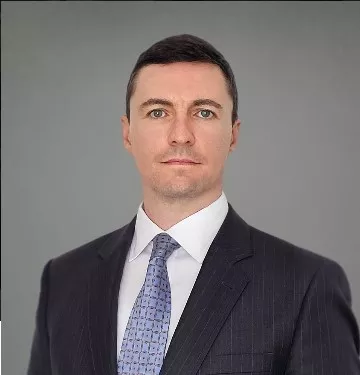As discussed in a prior post, Section 282(b) of the Delaware General Corporation Law ("DGCL") precludes liability against a stockholder of a corporation dissolved through the elective procedure for claims asserted against the dissolved corporation after the three-year period set forth in Section 278 (or longer in the Court's discretion). However, following the decision of Territory of the U.S. V.I. v. Goldman, Sachs & Co., 937 A.2d 760 (Del. Ch. 2007), aff'd 956 A.2d 32 (Del. Supr. Ct. 2008), the Court questioned whether the limitation of liability provided to stockholders of dissolved corporations utilizing the elective procedure, as set forth under Section 282(b), holds any weight. Based upon the Court's rationale in Goldman Sachs, the answer is likely that implementing the elective procedure provides no additional protection to "passive stockholders", but this issue remains unsettled as to controlling stockholders of a dissolved corporation.
Section 282(b) limits the liability of stockholders of dissolved corporations implementing the elective procedure of dissolution, providing as follows:
A stockholder of a dissolved corporation the assets of which were distributed pursuant to § 281(a) of this title shall not be liable for any claim against the corporation on which an action, suit or proceeding is not begun prior to the expiration of the period described in § 278 of this title.
8 Del. C. § 282(b). Accordingly, under Section 282(b), stockholders of dissolved corporations following the elective dissolution procedure will not be liable for any claim against the corporation commenced later than three years after the date of dissolution (or for such longer period as the Court directs).
The implication of the statute is that stockholders of a corporation dissolved through the default dissolution procedure may be liable for claims against the corporation commenced after the expiration of the three-year period (or longer as determined by the Court) prescribed in Section 278. However, the Goldman Sachs decision casts doubt on this notion at least as to "passive stockholders."
In Goldman Sachs, the Court of Chancery was confronted with the issue of whether a creditor possessing a claim arising after the expiration of the timeframe contemplated by Section 278 could proceed against a stockholder of a dissolved corporation which dissolved by extrajudicial means under Section 281(b). Relying upon the fact that Section 282(b) limits its application to stockholders of corporations that comport with the elective default procedure, plaintiff, Virgin Islands sought to seek distributions made to Goldman Sachs from a dissolved corporation, Panex Industries, Inc.
Chancellor Strine made clear that liability would not inure to an "innocent stockholder" of a dissolved corporation for claims asserted after the three-year period prescribed by Section 278. The Court noted that there exist no statutory grounds available to assert a claim against a stockholder of a dissolved corporation after the expiration of such period. The Chancellor further noted that:
[I]f common law were to be made, it should be at the instance of a later arising claimant who can at least prove that the directors of the dissolving corporation engaged in some act of inequity during the dissolution process, by disregarding the corporation's likely obligations to some specific contingent creditor or class of contingent creditors.
Goldman Sachs, 956 A.2d at 800. The Court went on to state that it would not embrace "the notion that a stockholder who received a distribution without knowledge of the directors' inequitable conduct—i.e. in good faith, and without scienter—should be exposed to a suit beyond the three-year period set forth in Section 278." Id.
Accordingly, based upon Goldman Sachs, it appears that a stockholder who is a "passive investor" without knowledge of potential inequitable conduct of directors during the dissolution process, would not be subject to liability on behalf of a corporation that dissolved pursuant to the default procedure, for a claim commenced after the period prescribed by Section 278.
As to whether non-passive or controlling stockholders of corporations dissolved by the default procedure would be held liable for claims commenced after the three-year period set forth in Section 278, with actual knowledge of the directors' inequitable conduct occurring during the dissolution process, the answer is unclear. Notably, this issue has not been addressed in Delaware case law. See In re RegO Co., 623 A.2d 92, 96 (Del. Ch. 1992) (finding unclear whether a person with a claim accruing after the period prescribed by Section 278, can pursue such claim against the directors and shareholders of a company dissolved by the default procedure).
The content of this article is intended to provide a general guide to the subject matter. Specialist advice should be sought about your specific circumstances.

